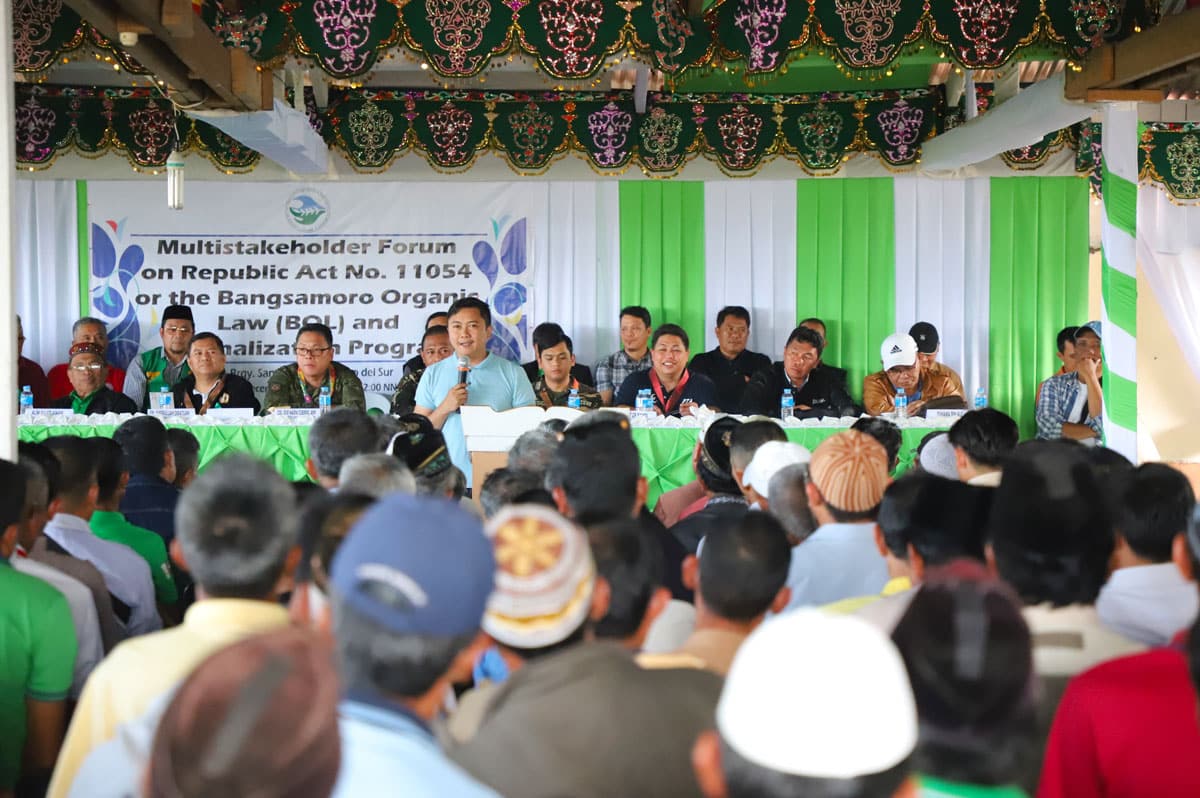Progress in the Peace Negotiations in the Philippines

The Comprehensive Agreement on the Bangsamoro (CAB) signifies a great milestone of peace negotiations over decades of talks in the Bangsamoro region in southern part of the Philippines. It is significantly the compilation and sum total of all the agreements, declarations, joint statements, principles and mechanisms reached and agreed upon between the government and the Moro Islamic Liberation Front (MILF) from the start of the peace talks in 1997 up to March 2014.

The principles of the negotiation recognized the justness and legitimacy of the cause of over 3,256,140 Bangsamoro people, their aspiration for the meaningful autonomy through a democratic process, the aim of finding a solution to the Bangsamoro question with honor, justice and dignity and the aim to end the fighting between the government and the MILF. The Bangsamoro Autonomous Region seeks to replace the Autonomous Region in Muslim Mindanao (ARMM) with a political entity that shall possess broader powers to address the decades-long aspiration of the Moro people for meaningful self-rule over their ancestral homeland, and that is where the Bangsamoro government now.
The Bangsamoro Organic Law realized another step to continue the infrastructure of peace process as stated in the CAB. This is to put in place and frontline the clear roadmap that will provide direction to transitional justice and reconciliation measures for the Bangsamoro struggle. It serves as mark of the commitment for peace as it proposes conflict transformation mechanisms on the ground.

The existence of normalization bodies in the CAB ensures human security and helps build a society that is committed to basic human rights where individuals are free from fear of violence and long held traditions and values. Under of which is the Joint Normalization Committee (JNC) which undertakes the process of normalization, Joint Peace and Security Committee (JPSC) that develops policies and operational guidelines for the effective partnership of the JPSTs and Joint Peace and Security Teams (JPSTs) as working for the maintenance of peace and order and the stability of the areas mutually identified by the GPH ( refers to Government of the Philippines) and the MILF. On the other hand, Independent Decommissioning Body (IDB) is mandated to oversee the process of decommissioning of the MILF forces and weapons.
The socio-economic programs were intensified on development efforts for rehabilitation, capacity building initiatives, reconstruction and institutionalizing programs to internally displaced persons (IDPs), and poverty-stricken communities. The Joint Task Force for Decommissioned Combatants and Their Communities (TFDCC) was established also to assist the panel to identify and implement socio-economic priorities and development projects for decommissioned MILF combatants and their communities.
The ceasefire mechanism including the Coordinating Committee on the Cessation of Hostilities (CCCH), International Monitoring Team (IMT) and Ad-Hoc Joint Action Group (AHJAG) are collaboratively working in the commitment to a general ceasefire necessitated to the ongoing peace talks and in the ironing out security issues and concerns in accordance with the security protocols agreed between the GPH and MILF. These are the on-going work and established commitment of both parties that will be reinforced its implementation.
There would be struggles in the transition period.
Lo Ivan Castillon
But, the pressing support and collaborative participation of international community to the Bangsamoro government provides significant account on the covenant established and put in place the sincerity of the government leaders to pursue it. There would be proactive and reactive measures in accompanying the transition phase, education, continuing campaign against potential bottleneck and organized working group to explore alternatives.
This would be an opportune time for the Bangsamoro leaders to serve and govern the Bangsamoro community as to ascertain their confidence and capacities on moral governance in responding to basic needs, reducing poverty, bridging social gaps, eliminating anti-social activities, improving human security, improving peace and enhancing unity within the territory.
Opportunities offer to challenge various stakeholders and sectors in government, private and civic organizations to work hand in hand in developing different conceptual issues, methodologies, analytical language and institutional practice and strategic approaches on theory and practice of moral governance in the Bangsamoro government.
The future leaders and general public are called for their active involvement in the exploration of the existing and potential linkages in support to Bangsamoro homeland. Moreover, there is a need to strengthen advocacy on peacebuilding, culture of peace, conflict transformation, active non-violence and peace process as long-term goal through series of campaigns, public consultations, fora, research and information and education campaigns among others. This will provide venue in acquiring rich knowledge, experiences and insights of diverse educational communities to benefit mutually through collaboration and solidarity among all stakeholders.
The processes are not just aiming to have the absence of war but are aiming to have a society wherein social justice prevails, economic system creates equal opportunities to all, ecological balanced establishes, respect and honor for uniqueness of one’s culture, traditions and beliefs and development of full human potentials made available.
Indeed, the CAB is the achievement of the present government that concludes the 16th congress and showcased its relevance to peace process and to the Bangsamoro government. As Bangsamoro, there are more to do, more opportunities to grab, more collaborations to link with, and more advocacies to work on towards the Bangsamoro aspirations to have shared vision (with the national government for national unity and reconciliation and within the Bangsamoro for peace and economic stability), shared leadership, good governance, improved peace and security, adequate and proper management of resources and more inclusive dividend of peace.
